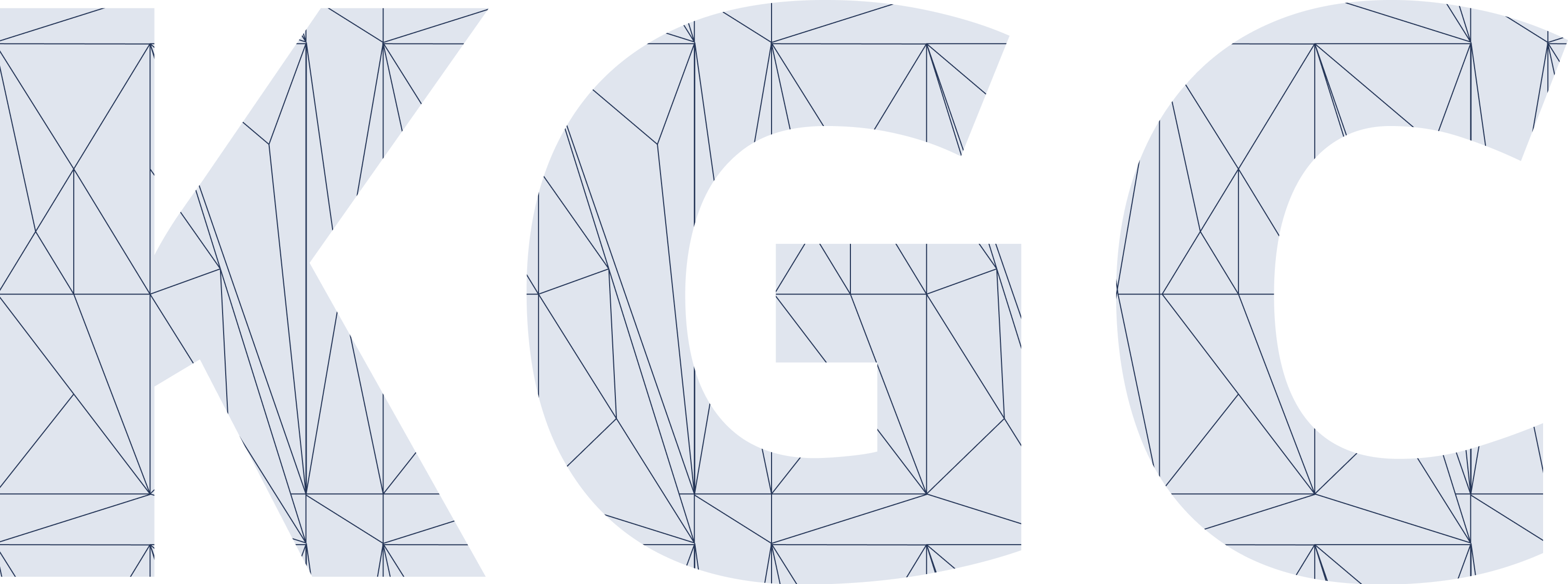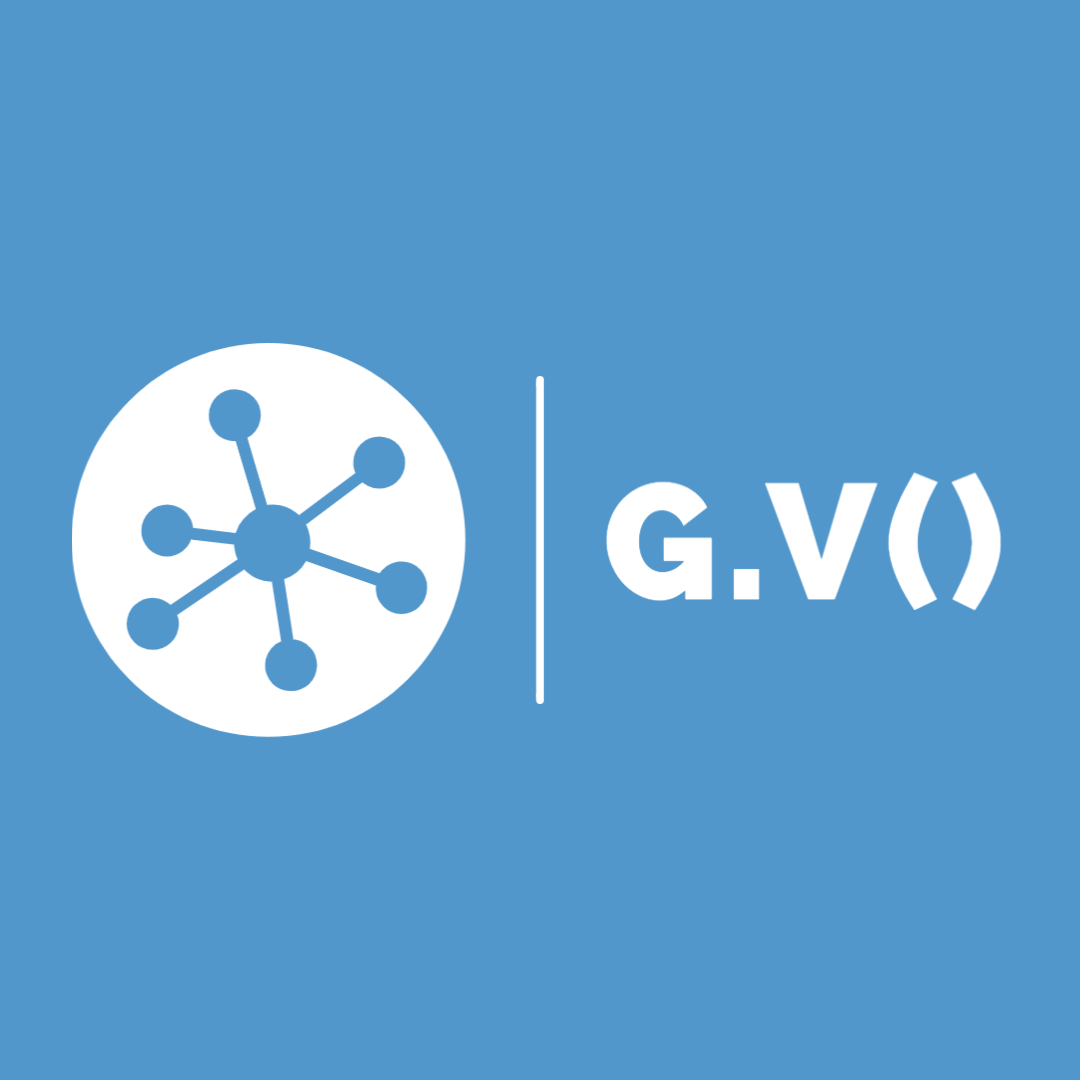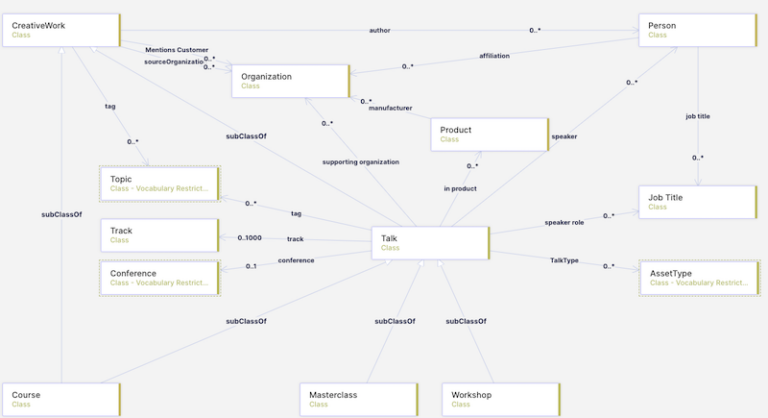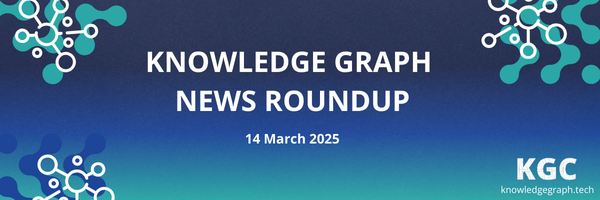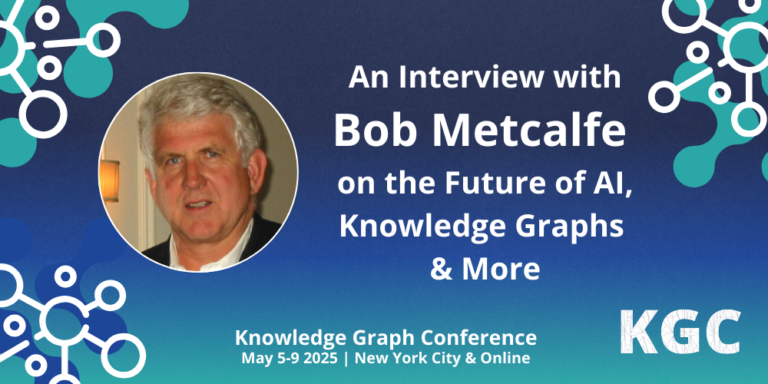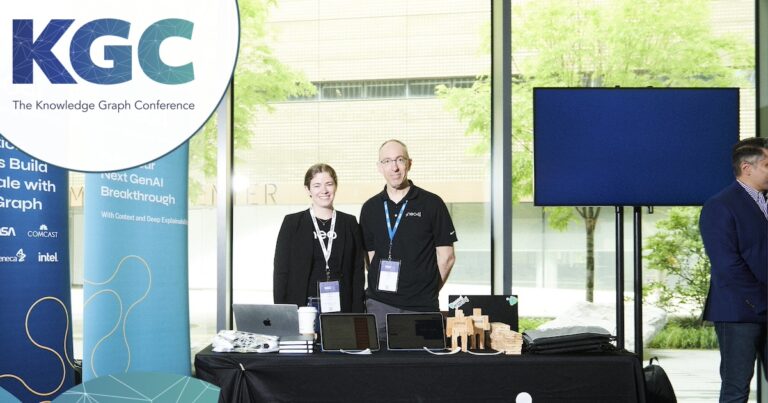Thank You for a Wonderful Knowledge Graph Conference 2025!
Wow! What an amazing experience it was to host this year’s Knowledge Graph Conference for you all.
We don’t know about you, but out of the 7 years we’ve organized KGC, this was the best year yet. It was so enjoyable getting to see everyone, meet new members of the KG community and catch up with old timers. There’s no substitute for shaking hands, rubbing elbows, and impromptu conversations over coffee or lunch. This is of course the main benefit of every conference, and especially for one that’s all about the power of connections.
There are too many people to thank for making KGC 2025 possible, but here’s our attempt anyway.
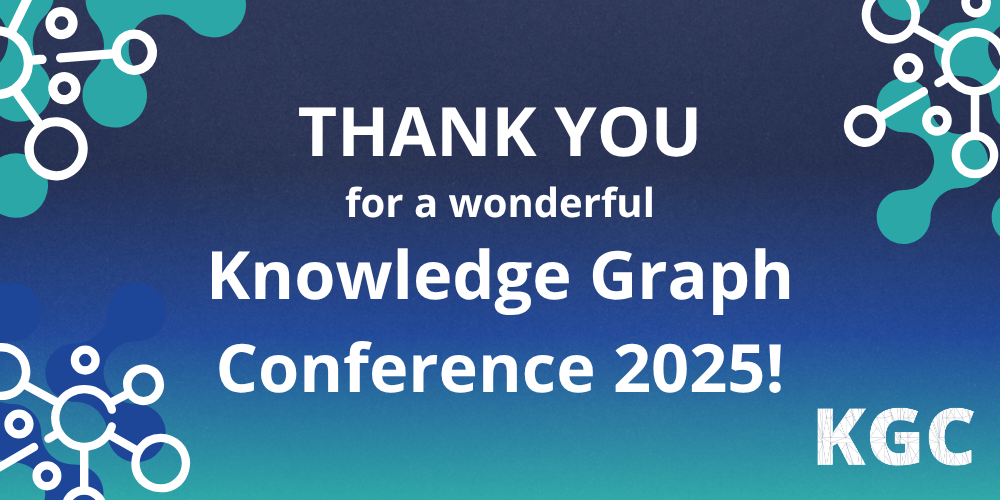
Speakers & Sponsors Galore: Proof that Knowledge Graphs Are More Relevant Than Ever
This year’s conference theme was “Knowledge Graphs + AI: Better Together,” and the speakers and presentations demonstrated the relevance of that theme across so many different industries, use cases, and other incarnations. All together, KGC 2025 had more than 110 speakers in 10 different tracks across 5 days of sessions and events. That’s the most we’ve ever had!
If you spoke, shared, moderated, or presented at KGC 2025: THANK YOU! Your contributions every year are what make this conference so special.
We’d also like to extend a tremendous thank you to all of this year’s sponsors and partners, including:
Platinum Sponsor
Gold Sponsors
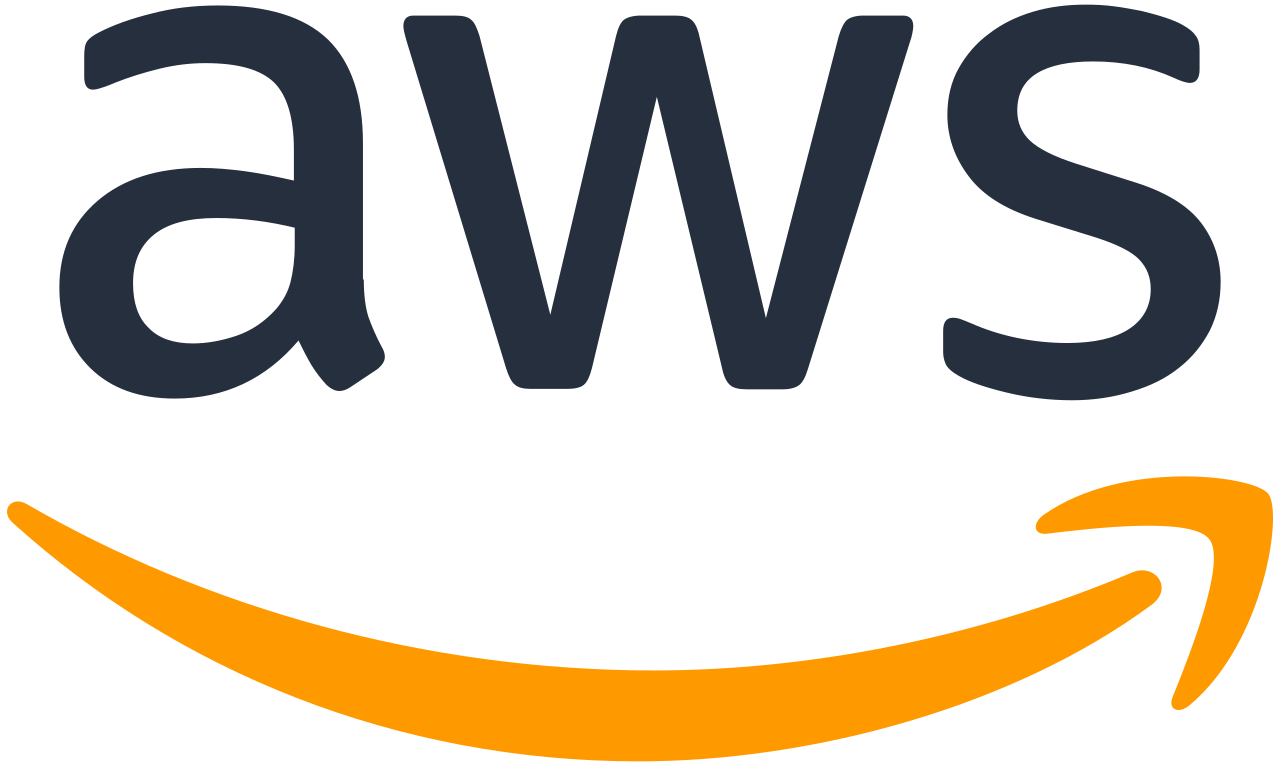
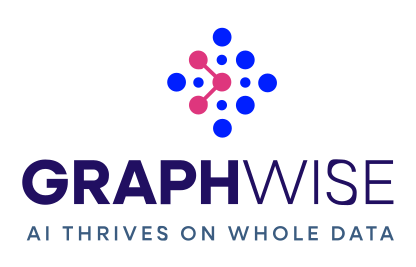
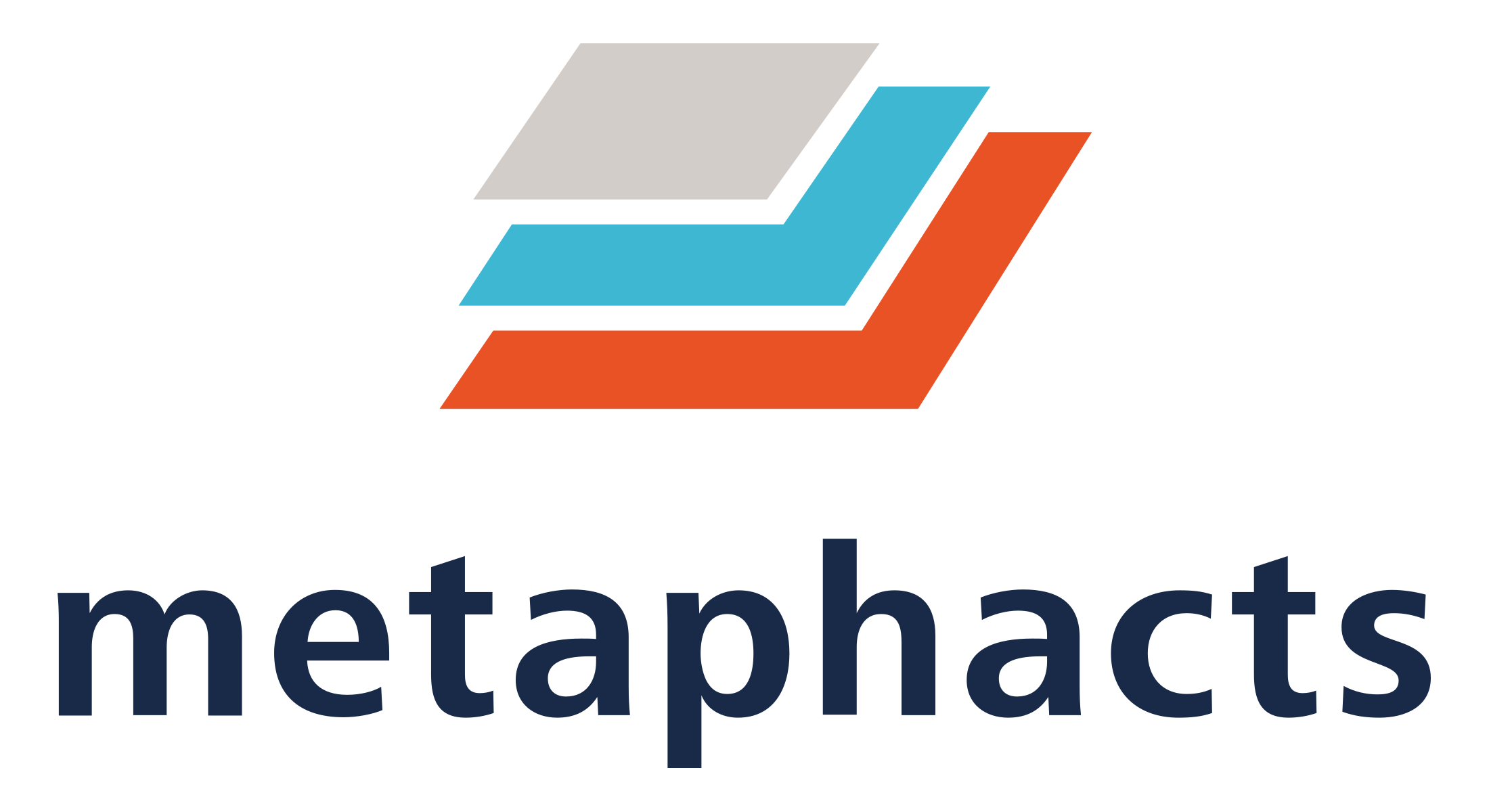

Silver Sponsors




![]()
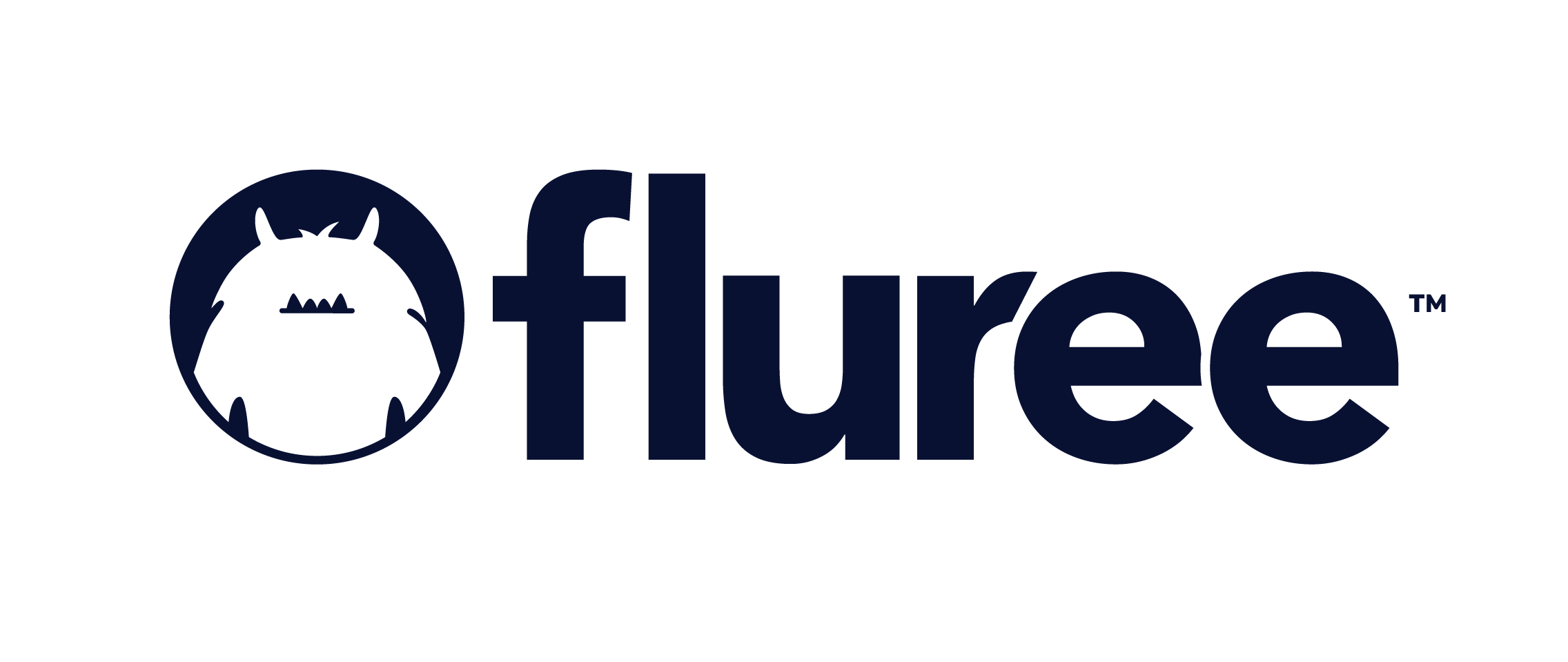
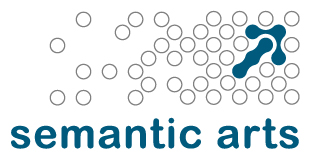
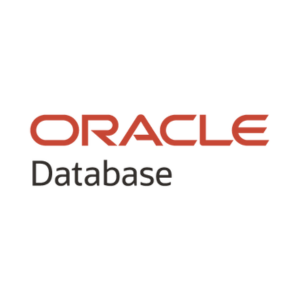
Bronze Sponsors


Days 1 & 2 at KGC 2025
The first two days of KGC were filled with hands-on learning tutorials, master classes, and more in-depth sessions. We also heard from Maru Willson, our Chief Learning Officer, about the new Knowledge Graph Learning Program (KGLP).
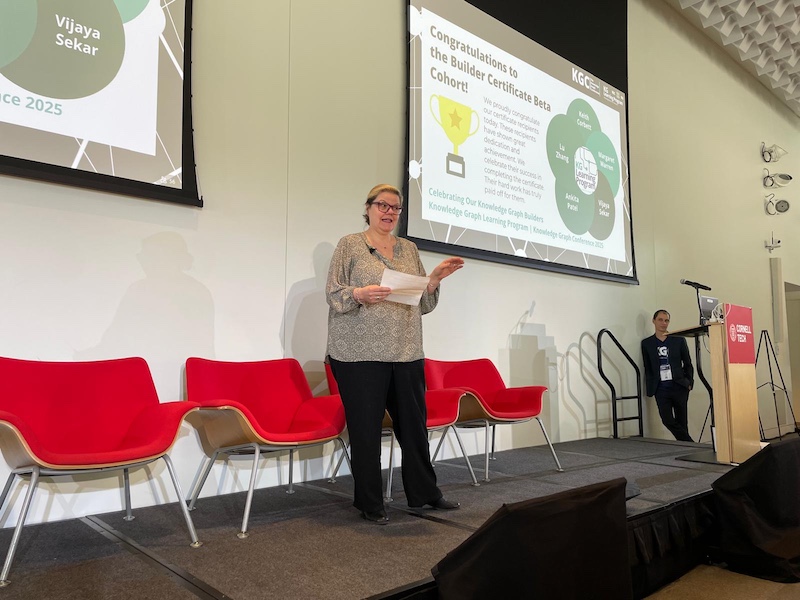
On day two, the agenda included a special “AI Rising Stars” session from Hugues Seureau and the KnowHax team featuring the participants and winners from the April 2025 KnowHax hackathon with the support from the U.S. National Science Foundation (NSF) Proto-OKN project. This year’s KnowHax event saw teams collaborate with leading institutions and universities such as NASA, Purdue University, Georgia Tech, and Temple University.
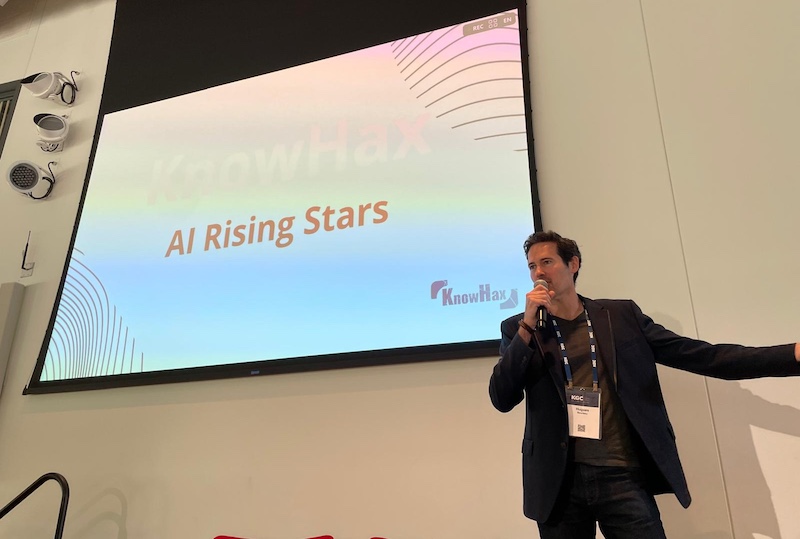
In addition to the main KGC learning sessions, day two also featured two mini-conferences: the Healthcare & Life Science (HCLS) Symposium and the Decentralized Knowledge Graph Conference (DKGcon).
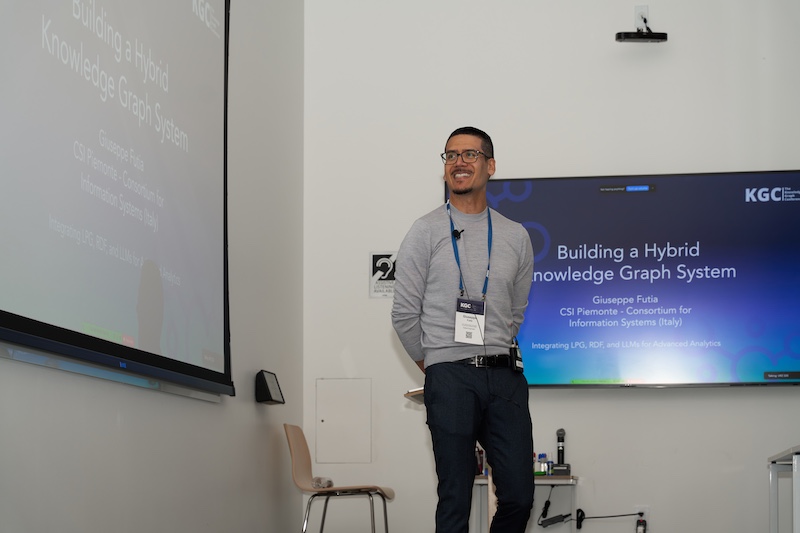
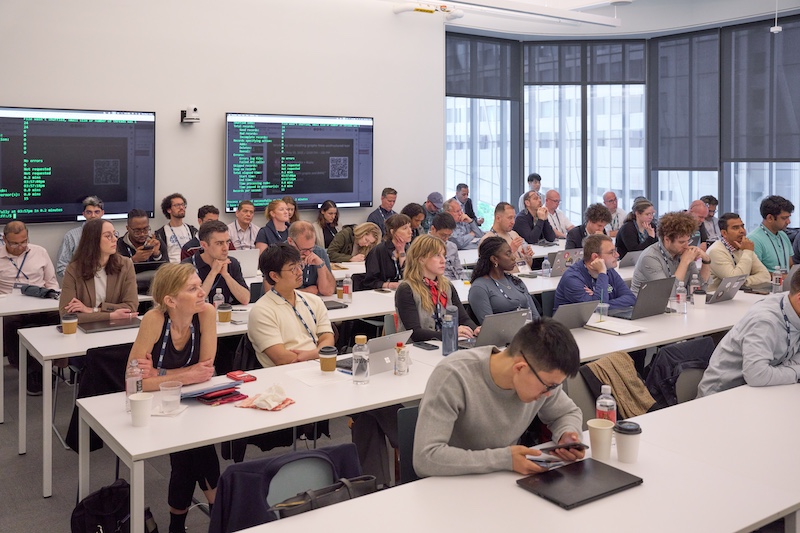
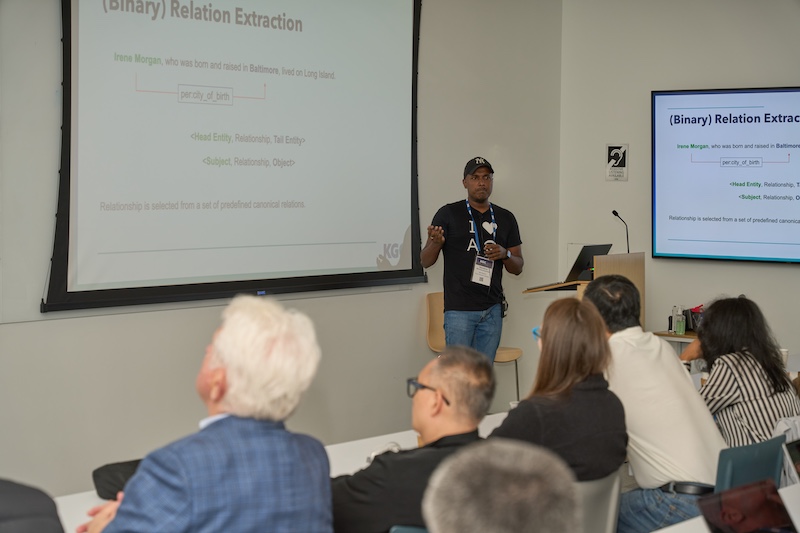
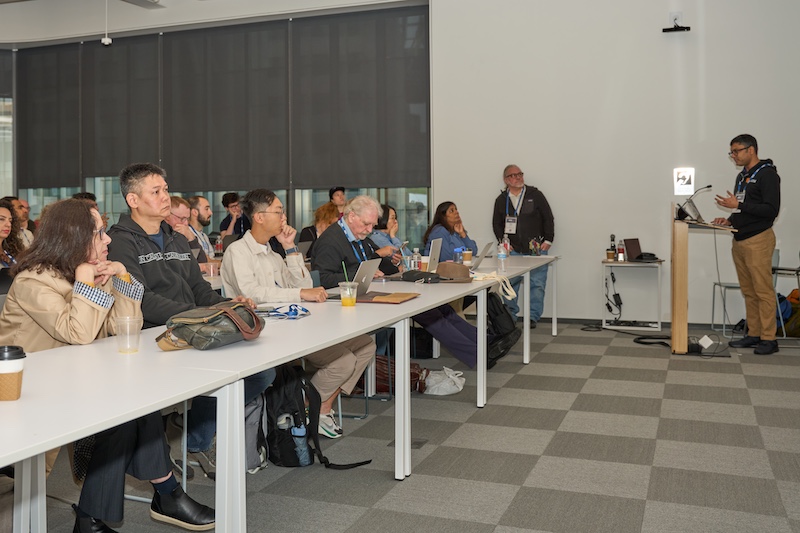
Healthcare & Life Sciences (HCLS) Symposium
A mainstay of the Knowledge Graph Conference is the HCLS track, featuring thought leaders from across the healthcare and life sciences industries and how they use knowledge graphs, AI, ontologies, and semantic tech to tackle some of their most pressing challenges.
Of note, Mark Musen, Stanford Medicine Professor of Biomedical Informatics, gave a great keynote on “Opportunities to Build Knowledge Graphs to Make Biomedical Data ‘AI Ready’” and Ying Ding, Professor in the School of Information, University of Texas at Austin shared a powerful talk on “Empowering Medical Communication using AI.”
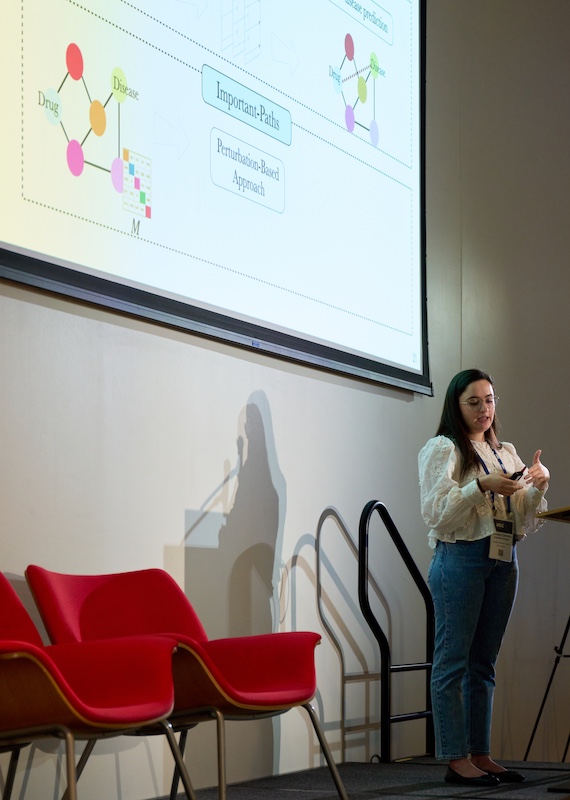
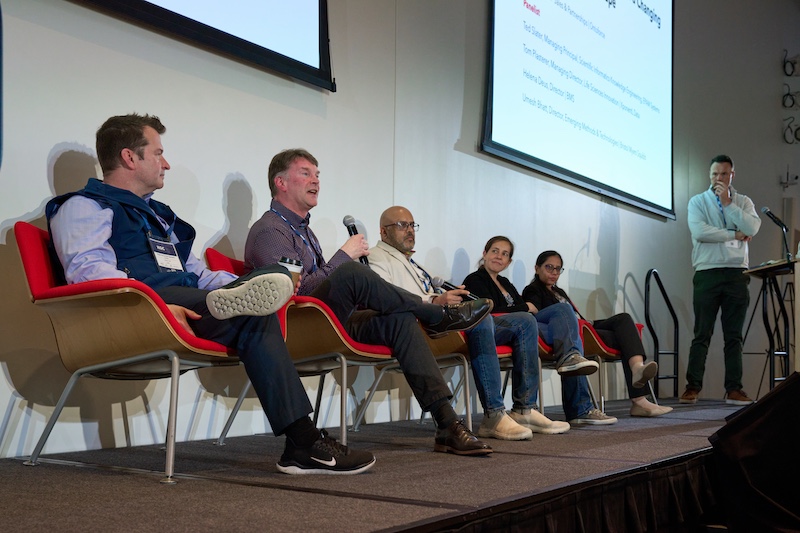
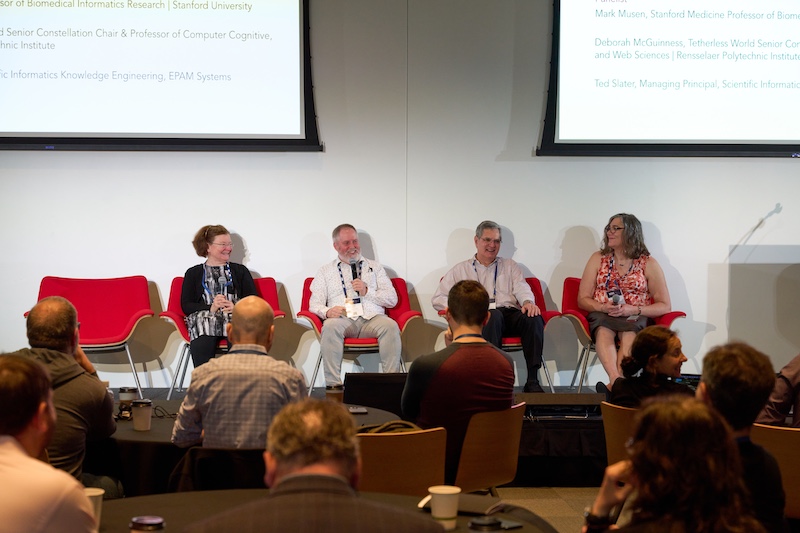
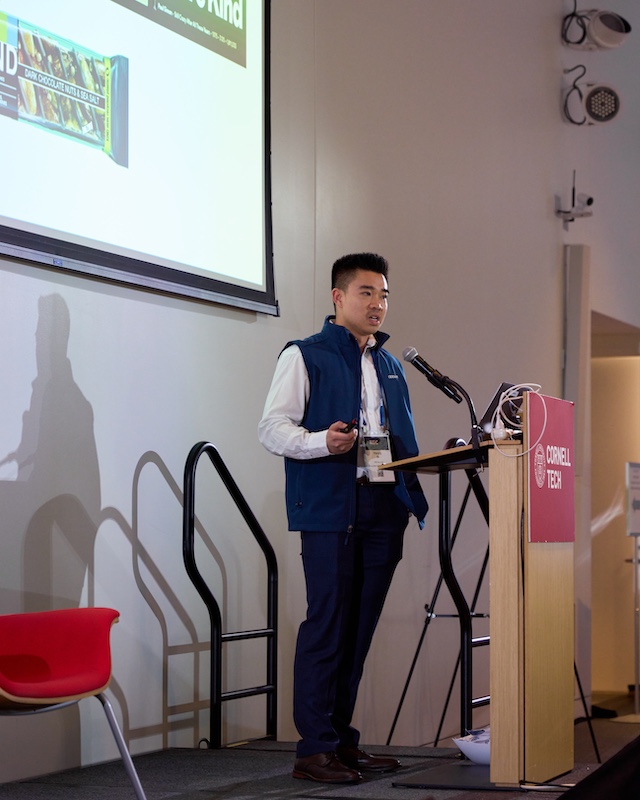
We’d like to thank these sponsors for making HCLS happen this year:



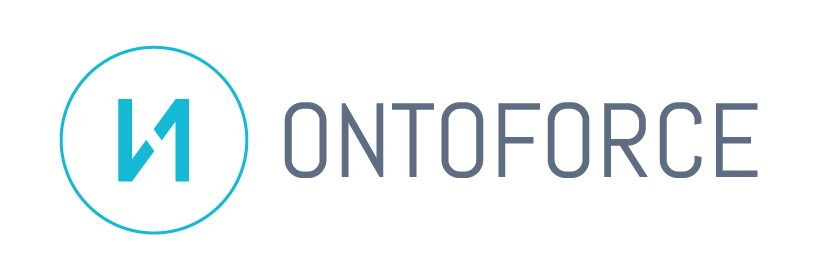
Decentralized Knowledge Graph Conference (DKGcon)
Also on day two of KGC 2025 was a new mini-conference track: the Decentralized Knowledge Graph Conference (DKGcon) sponsored by OriginTrail.
DKGcon included panel discussions on AI trustworthiness (via knowledge graphs, of course) featuring Dr. Bob Metcalfe as well as hands-on tutorial on how to build your own neuro-symbolic AI agent using a decentralized knowledge graph.
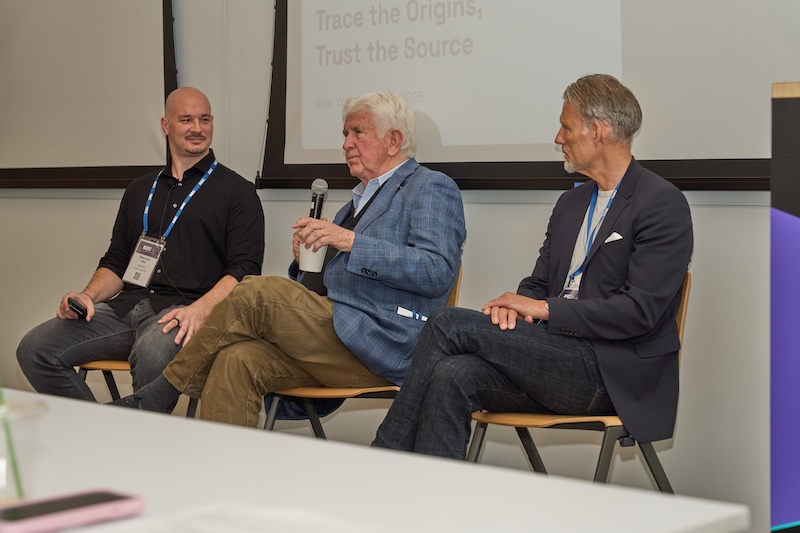
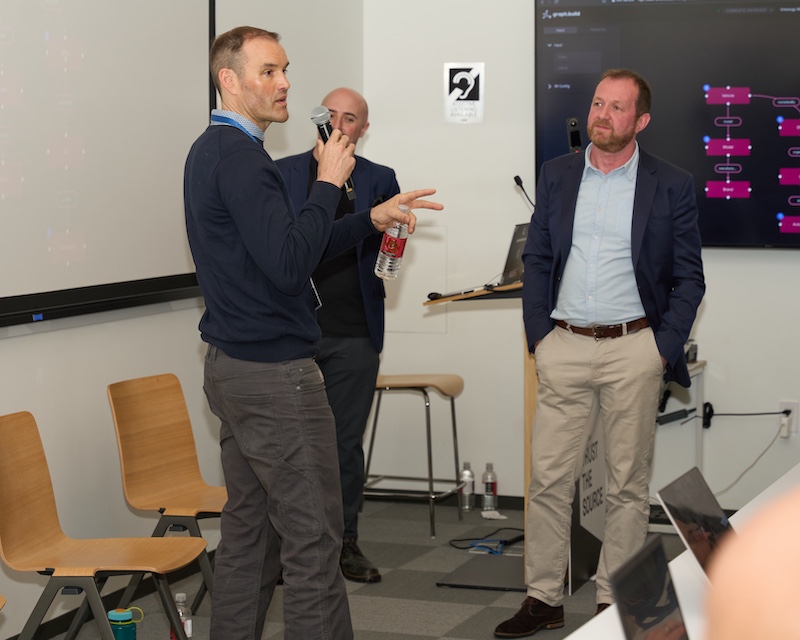
Of course, DKGcon wouldn’t have been possible without the generous sponsorship of the team at OriginTrail.
Days 3 & 4 at KGC 2025
Day three and four of the Knowledge Graph Conference always compose the core of the event, with conference talks, keynotes, poster sessions, and lightning talks.
Things kicked off with the opening ceremony and keynote by KGC founders Thomas Deely and François Scharffe (that’s us!). We always love welcoming you all to the Knowledge Graph Conference each year, and it was great to see so many new faces among the familiar ones we’ve seen regularly over the years.
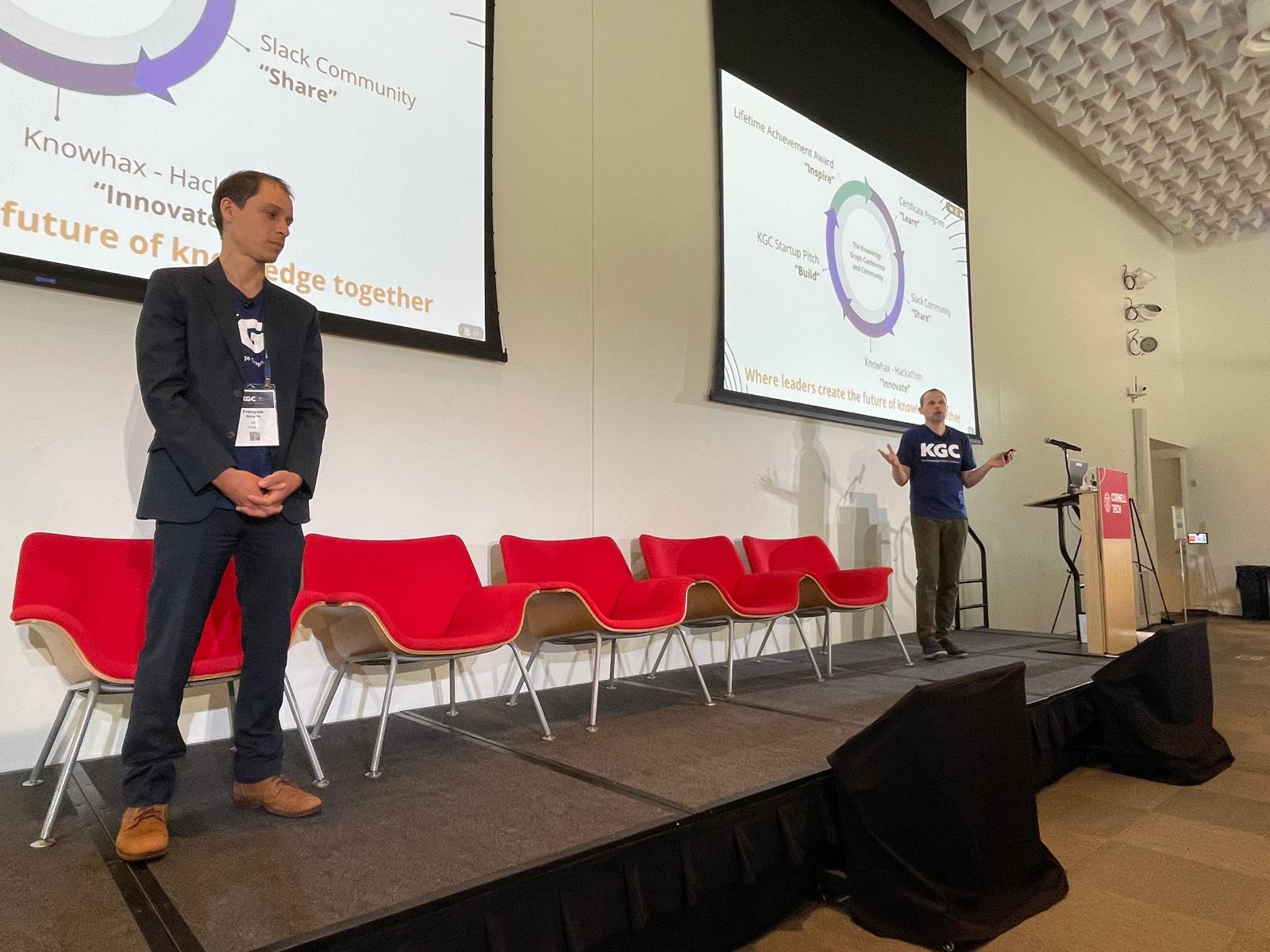
Of course, KGC is more than just the two of us. We also wanted to thank all of the organizing committee members who help sift, sort, and organize the talks into a coherent schedule each year.
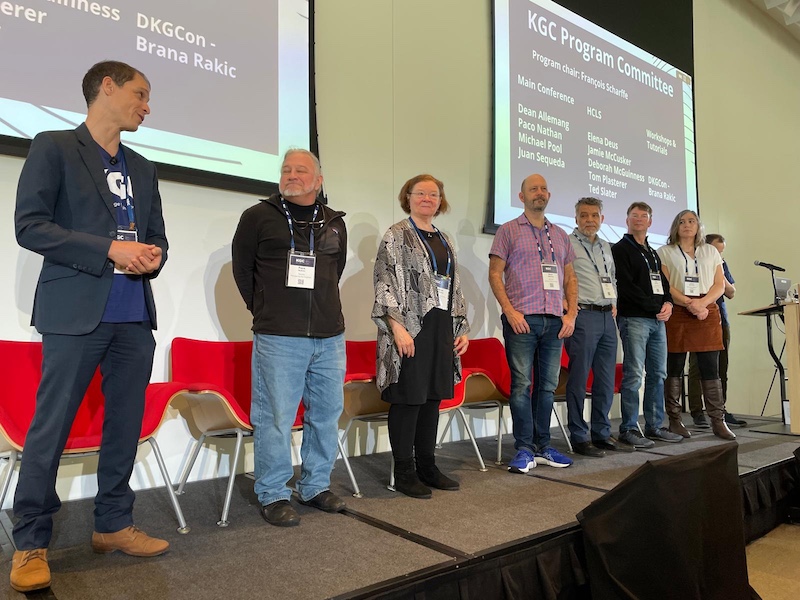
During the keynote, we announced the winner of the KGC Startup Pitch 2025, which saw a number of KG-related startups participating and competing for not only a $1,000 prize but also the chance to pitch their startup live to the conference attendees. This year’s winner was G.V(), a vendor-neutral graph database client and IDE, with founder Arthur Bigeard giving a stellar pitch to the audience.
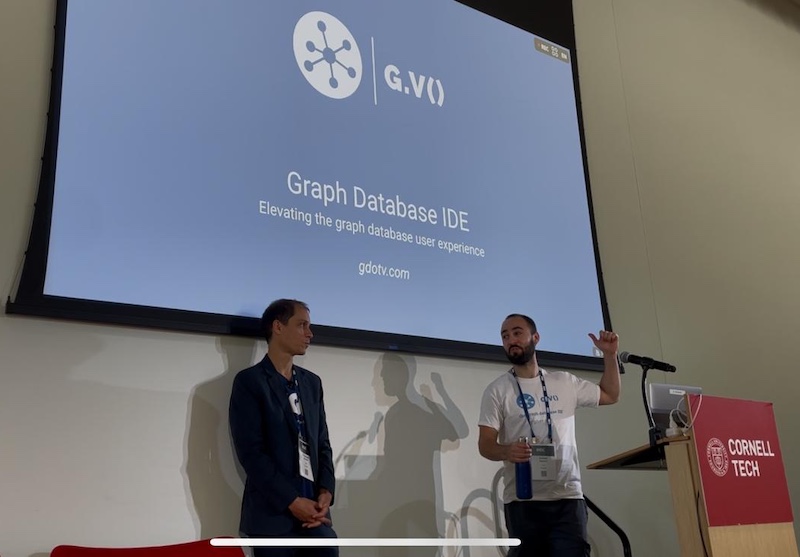
After that, it was time to recognize and celebrate the first cohort who had completed their Builder Certificate as part of the new Knowledge Graph Certificate Program. This inaugural class not only completed hours of learning and hands-on assignments, but they were also the beta participants of the new program and helped us work out all the bugs and glitches.
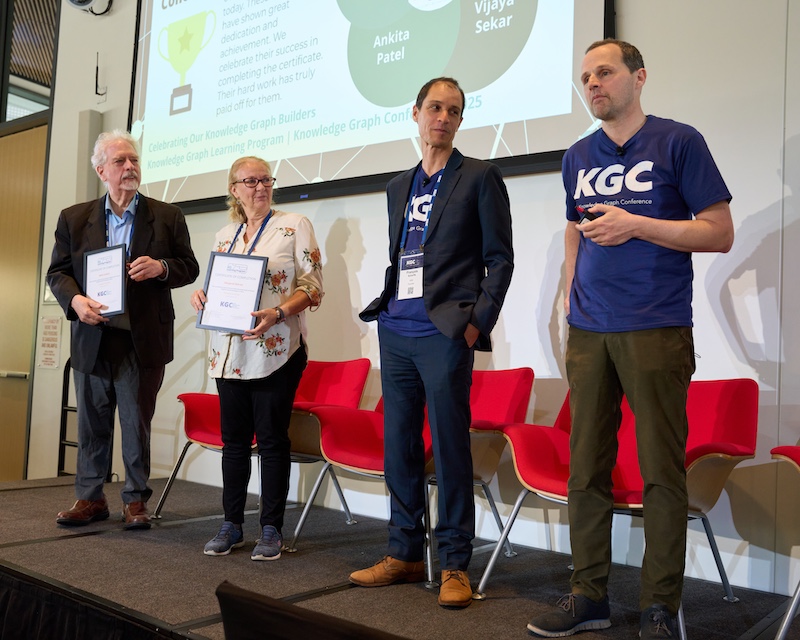
Next up was the KGC Lifetime Achievement Award. The purpose of this award is to honor the excellence and highlight the significant contributions of leaders in the knowledge graph field. This year’s Lifetime Achievement Award went to Mark Musen, Stanford Medicine Professor of Biomedical Informatics. We’d like to thank Mark for all of his contributions and research into knowledge graphs and semantic tech, and we hope this award shows our gratitude for everything he’s contributed over the years.
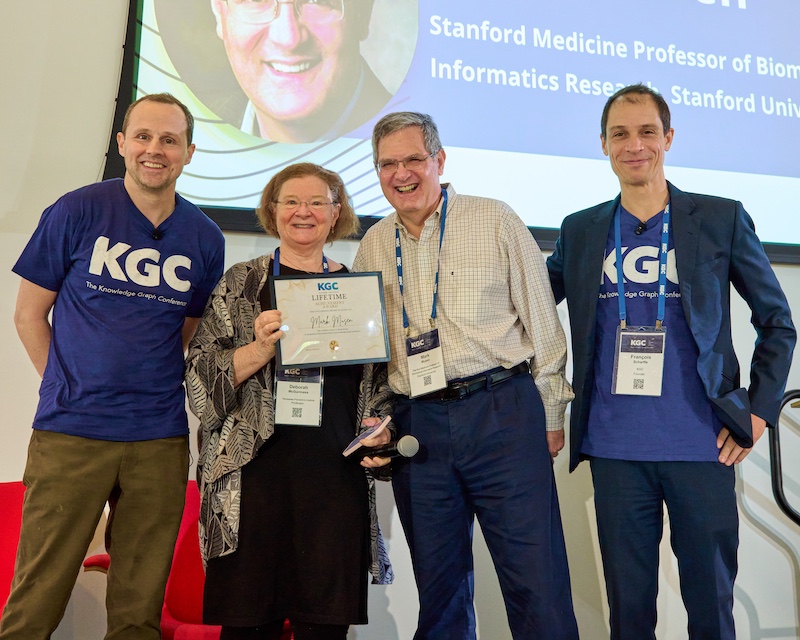
After that, we yielded the stage to Brian Martin from AbbVie for his keynote presentation, “Uncle AI Wants You! How Knowledge Graphs Will Form the Foundation of the Cognitive Enterprise” which you can see summarized below:
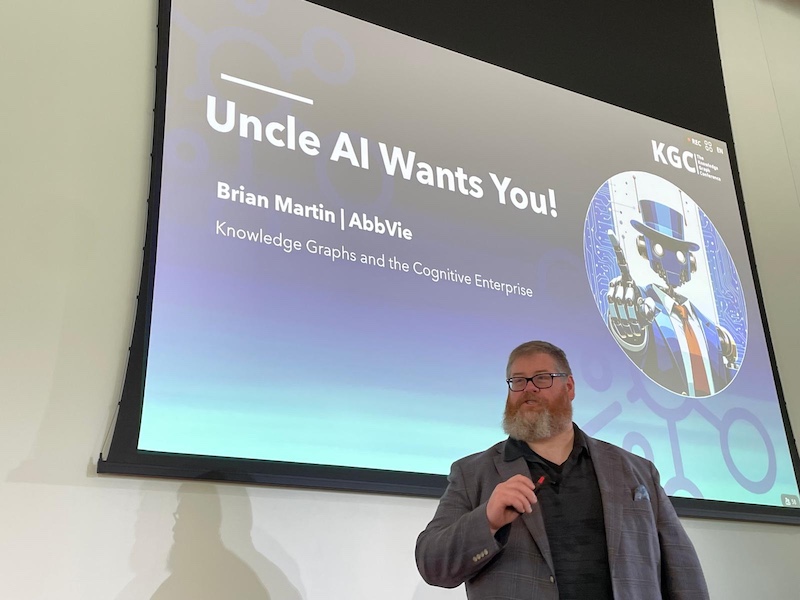
Other highlights from days three and four included the keynote presentation by Changhyup Oh from Samsung Electronics and Peter Crocker from Oxford Semantic Technologies. During the keynote, they shared the story of how the Personal Data Engine (knowledge graph) came to be included in the Samsung Galaxy S25 smartphone, representing possibly the largest deployment of knowledge graph technology ever – on millions of devices in the pockets of people worldwide. The presenters also announced that Samsung had acquired Oxford Semantic Technologies in order to make this knowledge graph deployment possible, providing another proof point on the commercial value of semantic technologies in today’s AI landscape.
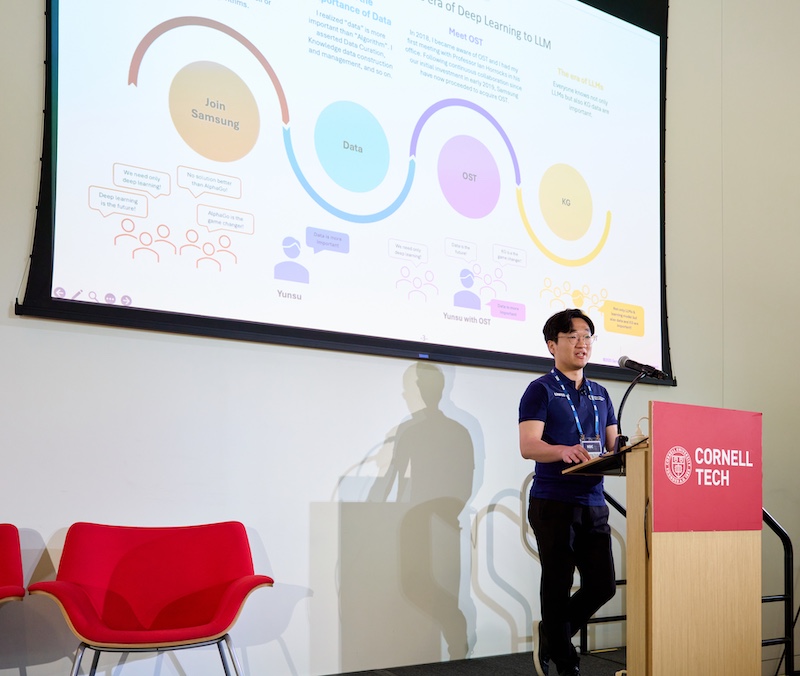
And finally, day four included a poster session where undergraduate students and young professionals could share their KG-related research and innovations. While most of the conference’s attention goes to the big talks and expert presenters (of which there are many), we always want KGC to be a space for knowledge graph newcomers are welcomed.
Day 5 & Other Events at KGC 2025
The final day of KGC 2025 was the Tools and Demonstration Track held online and in-person at the AWS offices in Lower Manhattan. Ashleigh Faith and her team did a great job moderating the track as always. It was great to see the wide diversity of different tools, libraries, and other tech in the knowledge graph ecosystem that have been emerging over the past year, especially as they overlap with large language models (LLMs) and artificial intelligence. And of course, a big thank you to AWS for hosting this year’s Tools & Demo Track as well as in years past!
Another highlight throughout the week were the number of official and unofficial happy hours, meetups, and other events happening after the main KGC sessions were over for the day. These get-togethers are always a great opportunity to meet new faces, catch up with old colleagues, and follow up on the ideas presented that day. Another big thank you to all the people who hosted or attended one of the happy hour events at this year’s Knowledge Graph Conference!
And a final highlight of the conference was of course the hallway conversations and spontaneous connections formed during and between sessions. The best part of any conference is the people you meet, and at a conference focused on the power of connections and networks, it’s even better.
Here are some pictures from some of the many great “hallway track” conversations that happened at KGC 2025.
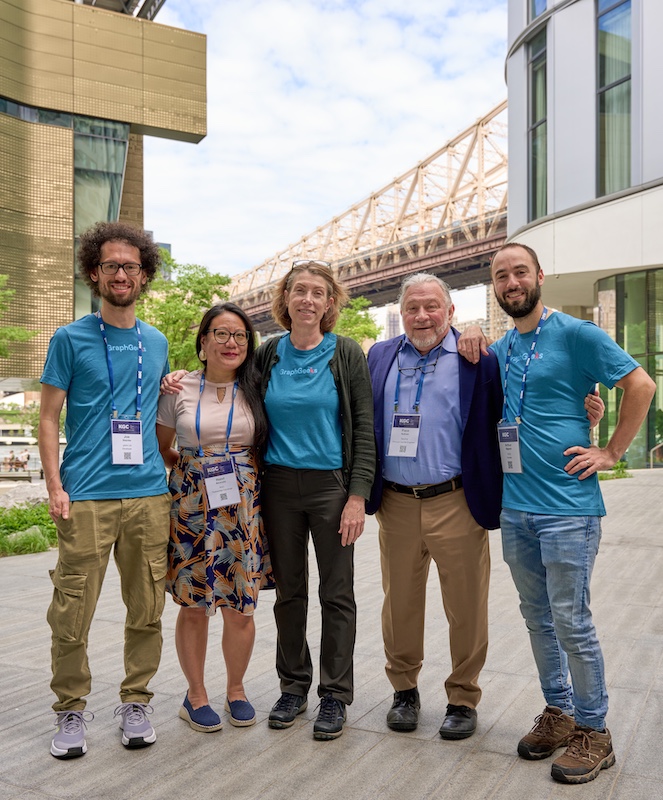
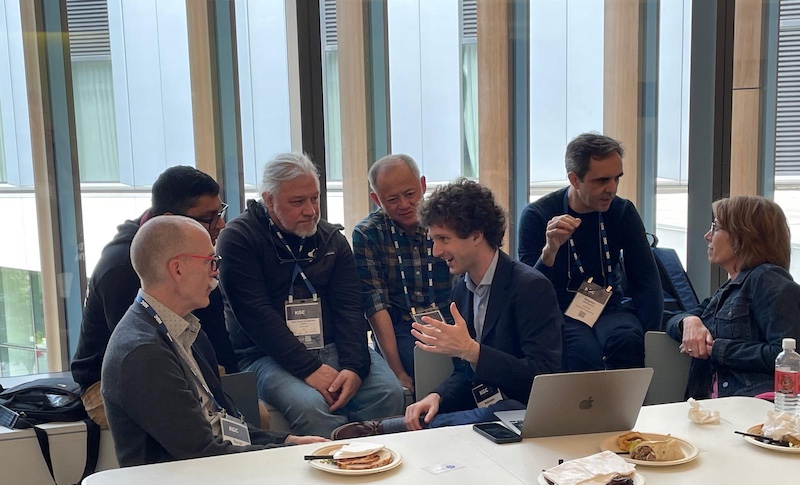
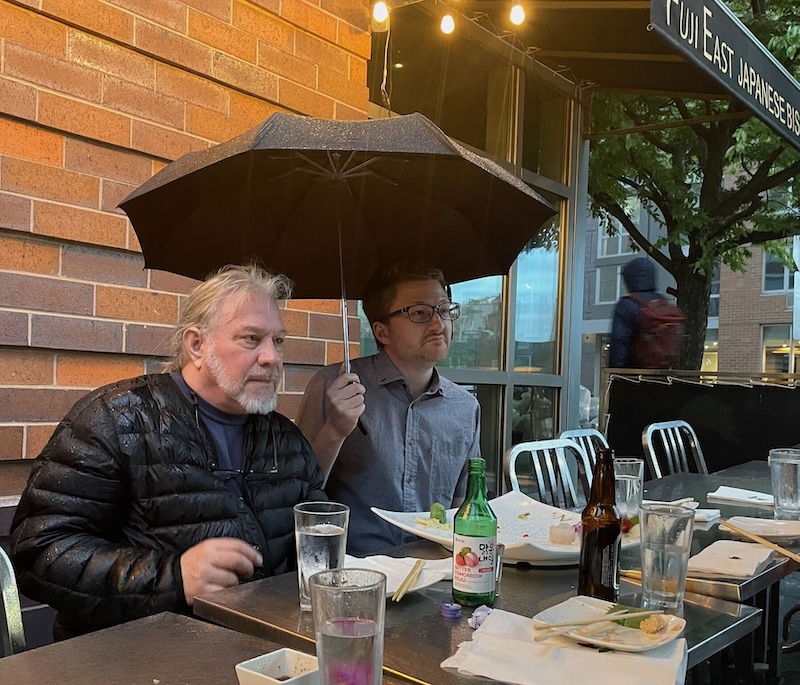
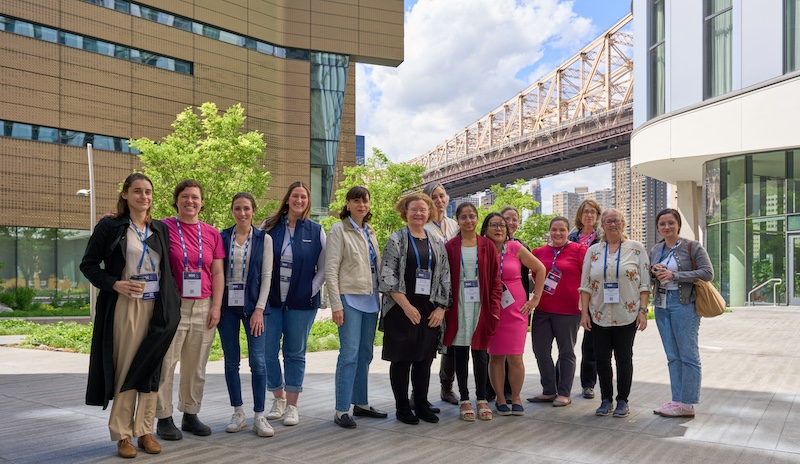
A Few Other Thank-Yous
This was our fourth year gathering at Cornell Tech on Roosevelt Island. It’s always such a stunning and inspiring location, and we’re thankful to their team for making us feel welcome and taking care of so many different logistics.
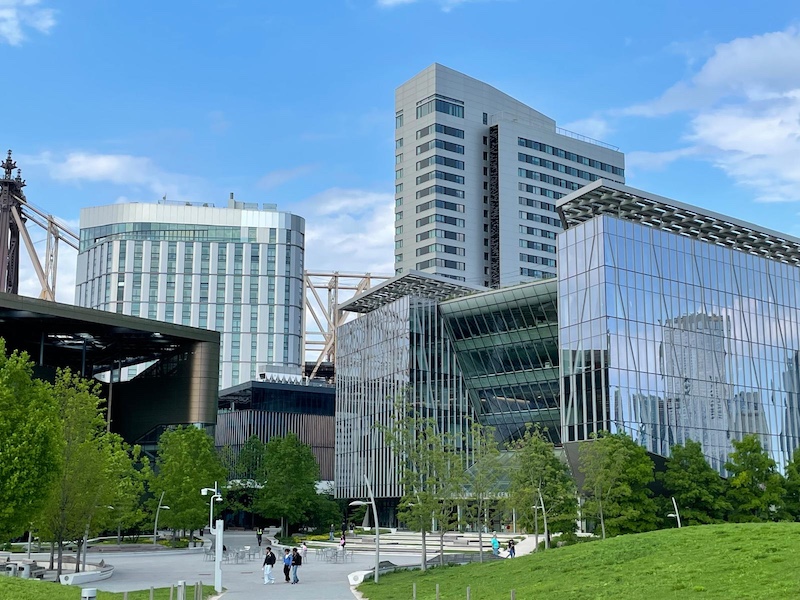
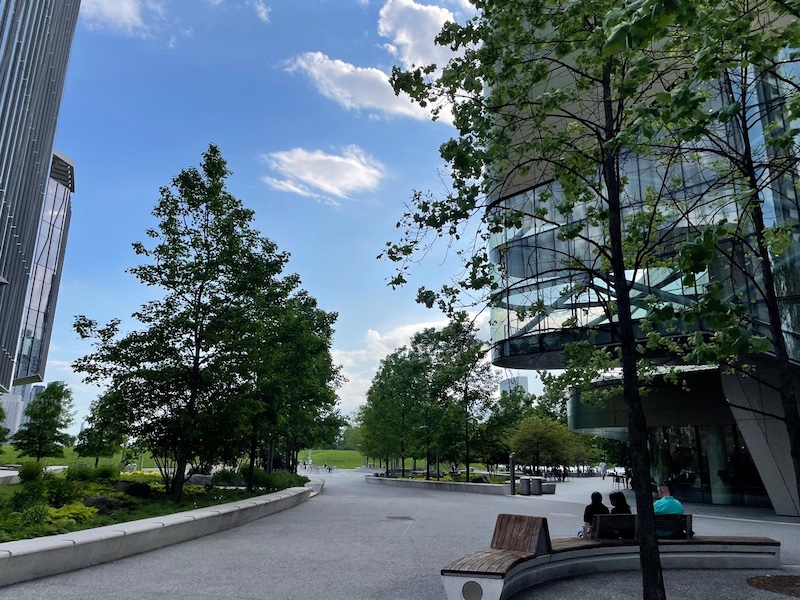
We also owe a huge debt of gratitude to the McVeigh Global Meetings & Events (MGME) team for all their hard work in making this conference happen and keeping it running smoothly on-site. Fabio, Erica, and Leah especially are worth calling out for all the sweat equity they poured into KGC 2025.
Finally, we’d like to thank the KGC in-house organizing team: Poya, Paige, Maru, Hugo, Hazel, Catalina, and Bryce. We’re grateful for all of your hard work in making the vision of KGC come to life.
Miss a Session? Catch Them on Whova or Vimeo
If you attended KGC 2025 in-person or virtually online, then you can still watch all of the recorded sessions via either the Whova mobile app or the Whova web portal through 9 August 2025 (three months after the conference end date). Please let us know if neither of those works, and we’ll get it figured out. We want all our attendees to be able to rewatch the talks from the conference.
If you didn’t attend this year’s conference – or if you want access to this year’s talks after August 9th – then you’ll need to subscribe to our Vimeo library here. This library gives you complete access to all the KGC talks from 2019 to 2025, so check it out and sharpen up your knowledge graph skills in the process.
See You Next Year!
Thanks again to everyone who attended, presented, moderated, and served at this year’s Knowledge Graph Conference. Your contributions are what made KGC 2025 an extraordinary event, and the KGC community is lucky to have you.
Watch out for our Community Survey for KGC 2026 coming later in July.
We’re already making plans on how to make next year’s conference bigger and better, so stay tuned!
–Thomas & François
***
